Your face is constantly giving you signals—whether you notice them or not. Lines, tones, and textures tell a story that goes beyond just age or beauty. In fact, your face can reveal hidden clues about your health, giving you a chance to address issues before they get worse.
What if the signs of dehydration, hormonal imbalances, or even gut dysfunction are already on your face, but you’ve never realized they were there? Once you learn to interpret these facial clues, everything changes. Let’s dive into the most common warning signs that your face might be trying to send you.
1. Dehydration Signs
One of the most common yet often overlooked signs your face is trying to tell you is dehydration. Your skin may appear dry, papery, or lacking elasticity. This isn’t just about feeling thirsty—your skin is your body’s largest organ, and when it’s not properly hydrated, it can show.

What to Look For:
- Dry, flaky skin: If your skin feels tight or rough, it’s a sign of inadequate hydration at the cellular level.
- Lack of elasticity: When you pinch your skin and it doesn’t bounce back quickly, it indicates your skin isn’t getting the hydration it needs.
- Dull complexion: Dehydrated skin can also appear lackluster and tired.
The Cause:
Dehydration often happens when you’re not drinking enough water, but it can also be linked to low levels of vitamin C, which is crucial for maintaining the structure of the skin. So, staying hydrated and replenishing your nutrients with a healthy diet is key.
2. Hormonal Imbalances
Hormones control more than just mood swings or energy levels—they can also leave visible signs on your face. When you experience sudden breakouts, puffiness, or noticeable lines, it could be due to fluctuations in your hormonal levels.
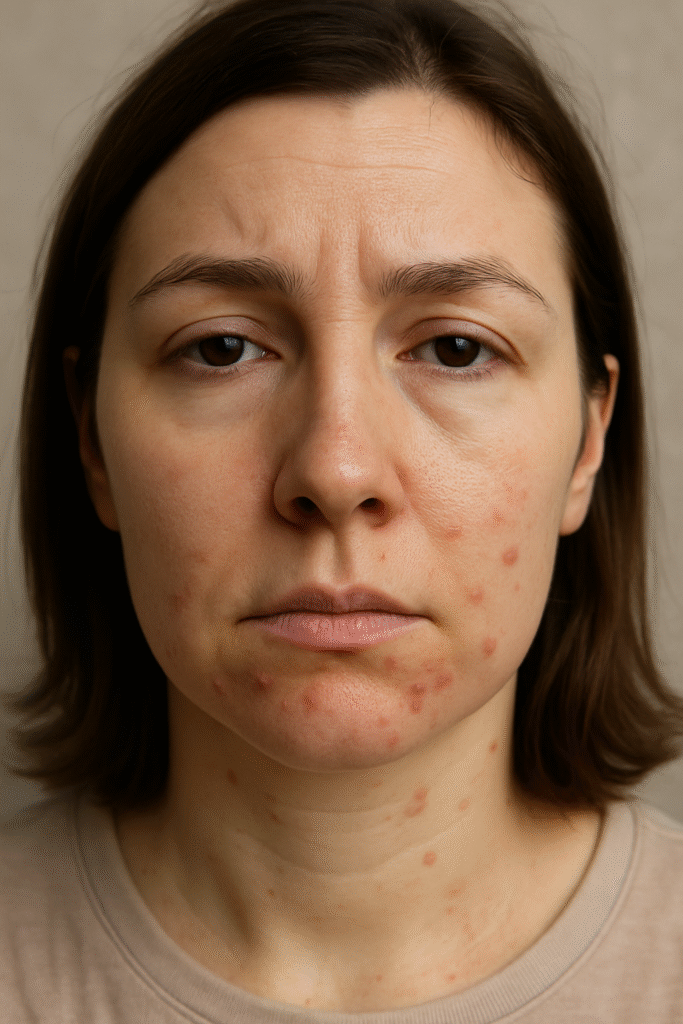
What to Look For:
- Puffy eyes: Swelling around the eyes, especially in the morning, might indicate high levels of cortisol or estrogen imbalances.
- Deep-set lines: As hormonal shifts occur, the skin around your eyes, mouth, and forehead may form deeper wrinkles.
- Sudden acne: Breakouts along the jawline, chin, or neck could point to a hormonal imbalance, often linked to the menstrual cycle or thyroid issues.
The Cause:
Hormonal imbalances from cortisol (stress hormone), estrogen, and even thyroid-related issues leave their marks on your face, often in the form of skin changes or eruptions. Addressing these imbalances through diet, stress management, or consulting a doctor can help clear up these warning signs.
3. Cardiovascular Indicators
Your face can also signal potential heart and circulation problems. This isn’t just about getting a red face after exercise—sometimes, the issues run much deeper. Facial changes like bluish skin or dark circles can point to poor circulation or lack of oxygen in your body.
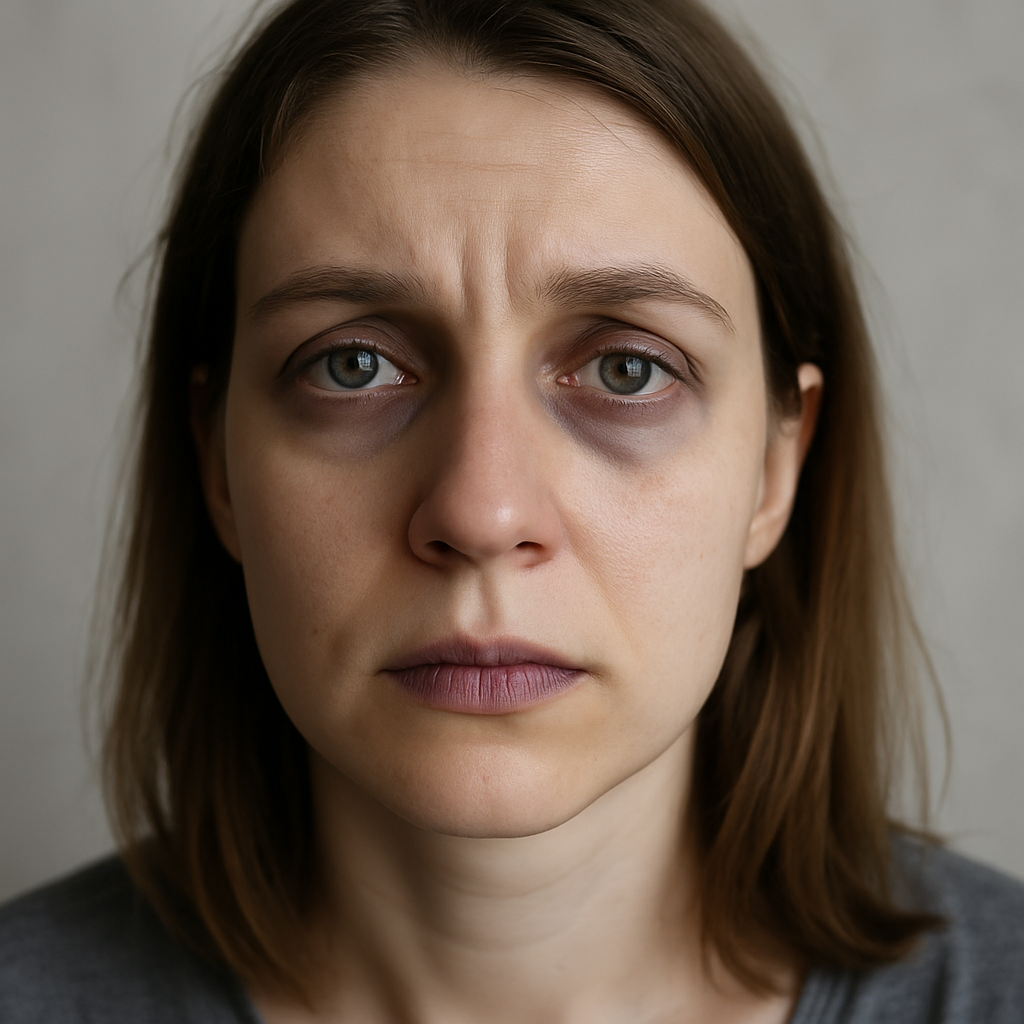
What to Look For:
- Bluish tint around the lips: A lack of oxygen or poor blood flow can cause a bluish or purplish hue, indicating that the heart may not be pumping efficiently.
- Dark circles under the eyes: While they’re often attributed to lack of sleep, dark circles can also be a sign of poor circulation, liver dysfunction, or even heart problems.
- Pale or ashy skin: Skin that lacks the usual warmth or color could be another clue that circulation is off.
The Cause:
Poor circulation, often linked to heart issues or low blood oxygen, shows up around the face—especially around the lips and under the eyes. If these signs persist, it may be time to consult with a healthcare provider to check your cardiovascular health.
4. Digestive Dysfunction
Ever notice breakouts around your mouth or chin that seem to appear no matter what you do? These can be a direct sign of digestive dysfunction. The connection between your gut and your skin, known as the gut-skin axis, is real. When your digestive system is out of balance, your skin will often bear the brunt.
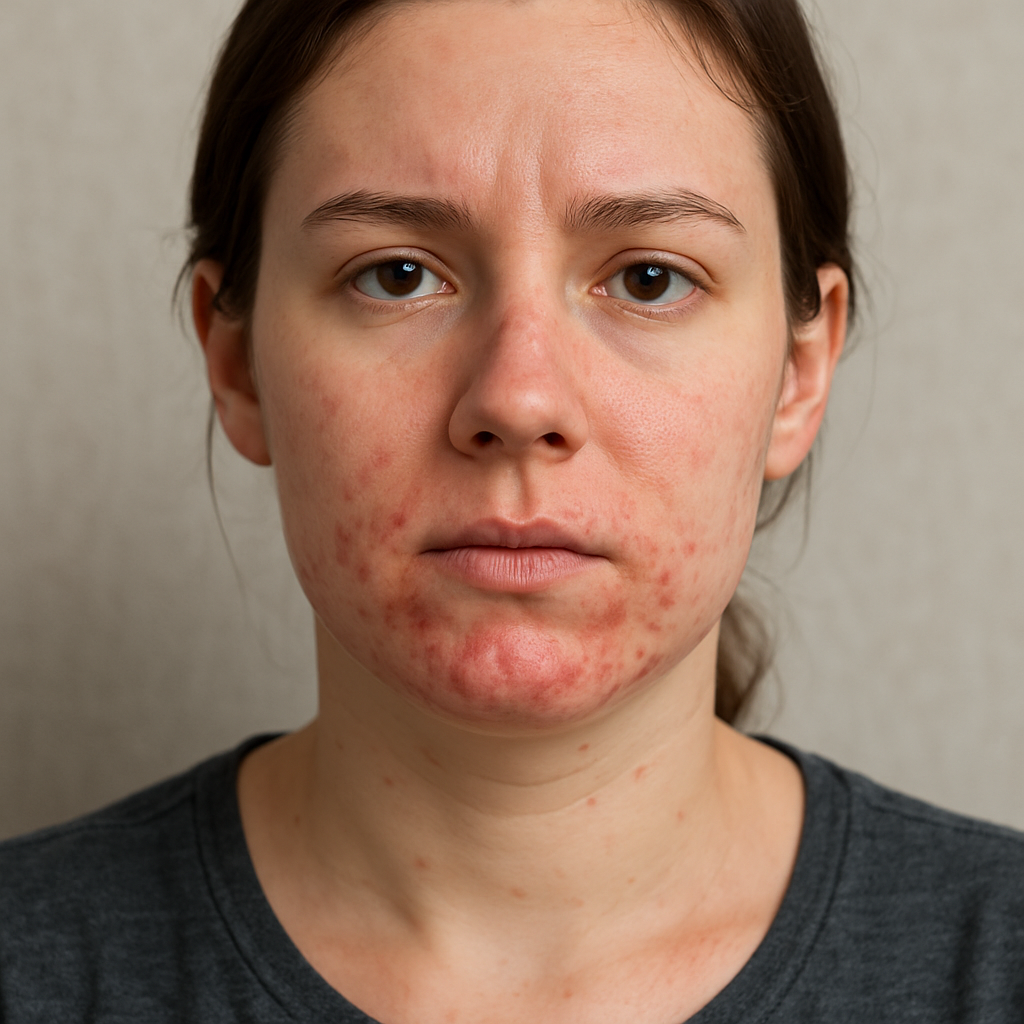
What to Look For:
- Breakouts around the mouth or chin: Often linked to hormonal shifts caused by digestive distress or poor gut health.
- Redness or unexplained rashes: A sign that your body’s inflammatory response is at work, often triggered by poor digestion.
- Bloating or discomfort: If your gut is struggling, it may reflect on your face as well.
The Cause:
Your digestive system and liver are closely connected to your skin. When your gut struggles to absorb nutrients properly or has an imbalance in good bacteria, your skin is often the first place to show it. Prioritize gut health through better nutrition, hydration, and probiotics.
5. Liver Stress
Your liver is essential for detoxification, and when it’s overwhelmed, it can show up in the form of skin changes. The liver helps process toxins, and when it can’t keep up, your face may carry the evidence.
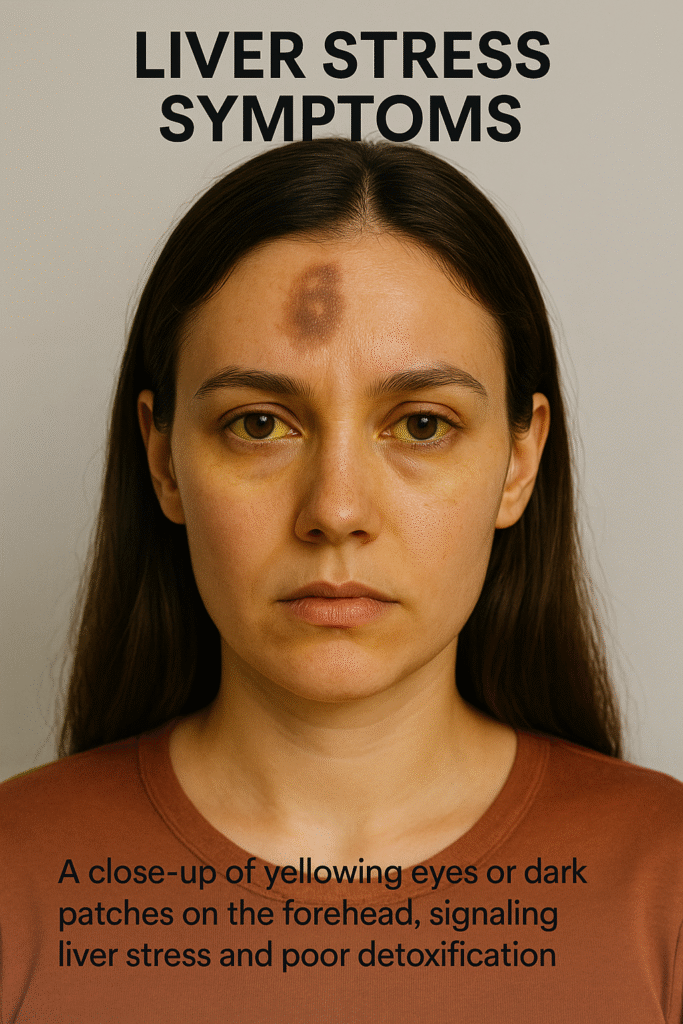
What to Look For:
- Yellowing of the eyes (jaundice): A clear sign that your liver may not be functioning at its best.
- Breakouts on the forehead: Clogged pores and excess toxins can show up as acne around the forehead or upper face.
- Dark patches on the skin: Often linked to excess toxin buildup, dark spots or patches could be a warning from your liver.
The Cause:
A stressed liver, whether due to alcohol, a poor diet, or other factors, can show up in visible skin changes. Detoxing your liver with a clean diet, hydration, and liver-supporting foods can improve the clarity of your skin.
Listen to Your Face
Your face is more than just a reflection of age or beauty—it’s a map to your health. Whether it’s dehydration, hormonal imbalances, or liver stress, the signs are there, and they’re speaking to you. The key is to listen.
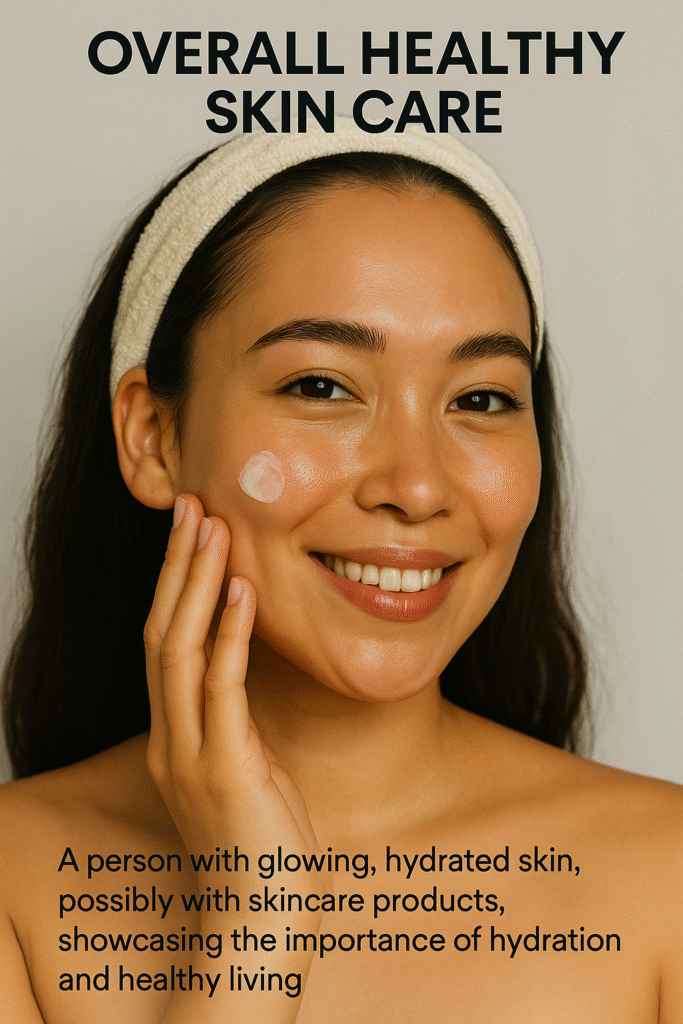
When you notice persistent skin changes or unusual patterns, don’t just dismiss them. Pay attention, make changes to your lifestyle, and seek advice from a professional if needed. By doing so, you’ll be able to catch issues early and take the steps to restore balance to both your skin and your health.
